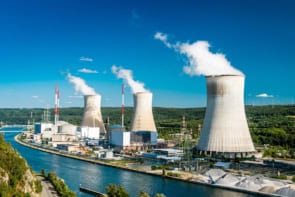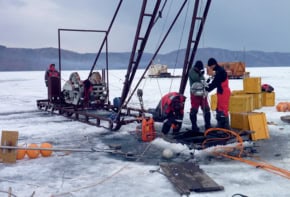An ever increasing stockpile of reprocessed plutonium may help reduce the problems of nuclear proliferation. According to a recent report by the Royal Society, the UK will have over 100 tons of civil-grade plutonium by 2010. Both Russia and the US on the other hand are spending billions of dollars converting military-grade plutonium for use in nuclear reactors. Frank von Hippel, an expert in arms control issues at Princeton University, New Jersey, suggests that the UK and France should consider exchanging civil plutonium for spent Russian nuclear fuel (Nature 394 415).
Russia and the US each have 50 tons of weapons-grade plutonium to dispose of by either converting it into fuel, or mixing it in with radioactive waste. At the same time, France and the UK separate 20 tons of plutonium a year from spent civilian nuclear fuel but burn only 9 tons a year as reactor fuel. Originally these plants were constructed to provide fuel for nuclear fast-breeder reactors. However, replenished uranium stocks and the expensive construction costs of these fast-breeder reactors has led to a civilian plutonium stockpile. This stockpile – now at 170 tons – is comparable to the amount of military plutonium available. Experts are worried that material from both stockpiles may be stolen by terrorists, or that storing and handling the plutonium will result in an radioactive accident.
However, there may be a solution. Under present commercial arrangements at British Nuclear Fuels Limited (BNFL), the company takes 4, 500 tons of spent light water reactor fuel from its customers and returns 40 tons of reprocessed plutonium, and the equivalent radioactive waste in stored glass containers. Von Hippel suggests that the UK could trade plutonium from its civilian stockpile for this light water reactor waste instead of continuing to reprocess new material. The remnants of the stockpile could then be mixed with liquid high-level waste and glassified, or traded under a similar scheme with Russia. Such a scheme may be attractive to Russia as it recently announced a new $18 billion building programme for several new nuclear reactors, all suitable for burning plutonium. If the UK does not take steps to reduce its stockpile “it will have to resort to much more costly disposal options, ” says von Hippel.



